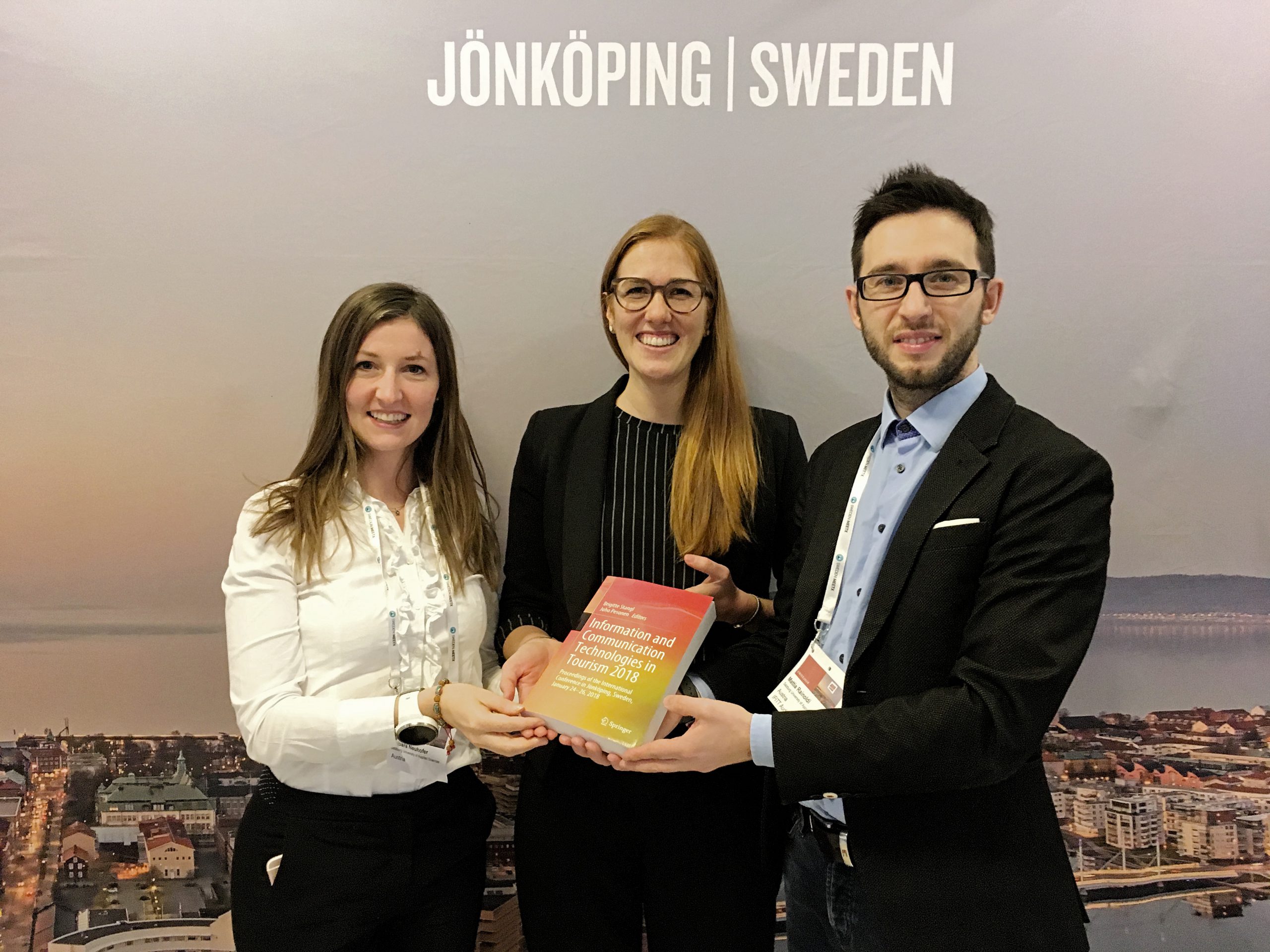Barbara Neuhofer, Julia Beck (IMT master alumna) and Mattia Rainoldi presented two papers at the world leading conference for eTourism, ENTER2018, which took place from 23-26th January in Jönköping, Sweden! Check out the papers published in Springer!
Beck, J. and Egger, R. (2018) Emotionalise Me: Self-reporting and Arousal Measurements in Virtual Tourism Environments
Rainoldi, M., Neuhofer, B. and Jooss, M. (2018) Mobile eyetracking of museum learning experiences.
‘Mobile Eyetracking of Museum Learning Experiences’
by Barbara Neuhofer, Mattia Rainoldi and Mario Jooss presents a first large-scale mobile eyetracking study through a multiple-stage research design that focuses on the visitor’s interactive learning experience in a real-life museum context.
Abstract
Eyetracking research has gained traction in a wide range of contexts and finds increasing application in the travel and tourism domain. Whilst there exists some empirical evidence of eyetracking in tourism, most research to date is restricted to lab environments and desktop computers, or occurs on a small scale. This paper presents a first large-scale mobile eyetracking study through a multiple-stage research design that focuses on the visitor’s interactive learning experience in a real-life museum context. Based on an emic visitor perspective, the findings unlock insights into a range of factors that shape the physical context of the museum learning experience. This study makes a theoretical contribution and offers methodological advances to eyetracking research and museum interactive learning experiences. Strategic implications for research and practical recommendations for experience design in a museum are offered.
‘Emotionalise Me: Self-reporting and Arousal Measurements in Virtual Tourism Environments’
by Julia Beck and Roman Egger investigates the application of fully-immersive VR systems in tourism marketing and analyses how it influences emotional responses and decision-making.
Abstract
The technological developments regarding Virtual Reality (VR) are providing new opportunities for the tourism industry. This research investigates the application of fully-immersive VR systems in tourism marketing and analyses how it influences emotional responses and decision-making. During a laboratory experiment, subjective measurements were combined with physiological measurements of arousal. Study participants were exposed to a 360-degree destination marketing video, using either a head-mounted display (HMD) or a desktop-PC. Whereas the physiological parameters of heart rate and electrodermal activity showed a significant increase with the HMD-group, subjective evaluation of emotions and decision-making did not indicate any significant differences. These partly contradicting results suggest further investigation of emotions and arousal measurement, analysis and interpretation through field experiments. Nevertheless, from subjective opinions of participants and participant observations it could be concluded that VR as a marketing tool has the potential to increase positive emotions. Taken the enthusiasm and interest for VR in tourism into account, recommendations concerning investment in VR technology are given.
The team of Salzburg University of Applied Sciences contributed with their latest work to the IFITT community and the knowledge exchange at ENTER18 in Jönköping, Sweden.

If you are interested in these very exciting and forward-looking articles, you can download them on:
Springer Verlag, :
Information and Communication Technologies in Tourism 2018
Emotionalise Me: Self-reporting and Arousal Measurements in Virtual Tourism Environments
Mobile Eyetracking of Museum Learning Experiences
ENTER Programme:
